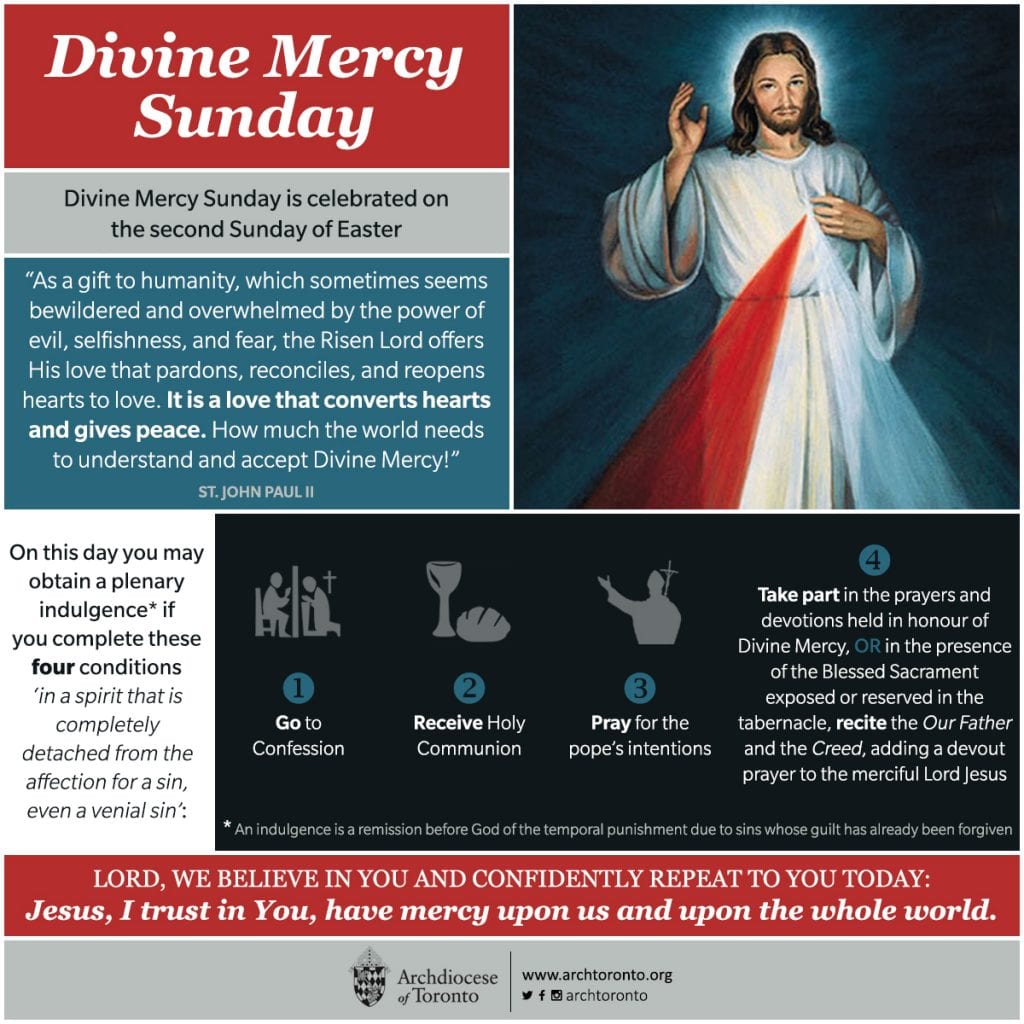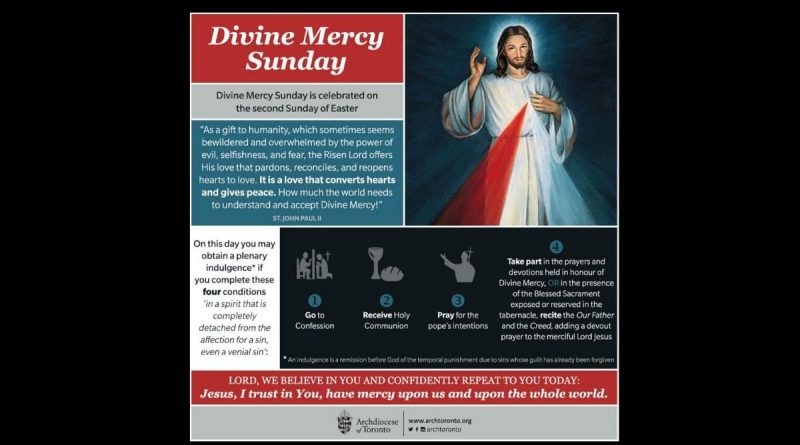Three conditions for the plenary indulgence – Divine Mercy Sunday…What you need to know.

To ensure that the faithful would observe this day with intense devotion, the Supreme Pontiff himself established that this Sunday be enriched by a plenary indulgence, as will be explained below, so that the faithful might receive in great abundance the gift of the consolation of the Holy Spirit. In this way, they can foster a growing love for God and for their neighbour, and after they have obtained God’s pardon, they in turn might be persuaded to show a prompt pardon to their brothers and sisters.
Pardon of others who sin against us
Thus the faithful will more closely conform to the spirit of the Gospel, receiving in their hearts the renewal that the Second Vatican Council explained and introduced: “Mindful of the words of the Lord: “By this all men will know that you are my disciples, if you have love for one another’ (Jn 13,35), Christians can yearn for nothing more ardently than to serve the men of this age with an ever growing generosity and success…. It is the Father’s will that we should recognize Christ our brother in the persons of all men and love them with an effective love, in word and in deed (Pastoral Constitution, Gaudium et spes, n. 93).
Three conditions for the plenary indulgence
And so the Supreme Pontiff, motivated by an ardent desire to foster in Christians this devotion to Divine Mercy as much as possible in the hope of offering great spiritual fruit to the faithful, in the Audience granted on 13 June 2002, to those Responsible for the Apostolic Penitentiary, granted the following Indulgences:
a plenary indulgence, granted under the usual conditions (sacramental confession, Eucharistic communion and prayer for the intentions of Supreme Pontiff) to the faithful who, on the Second Sunday of Easter or Divine Mercy Sunday, in any church or chapel, in a spirit that is completely detached from the affection for a sin, even a venial sin, take part in the prayers and devotions held in honour of Divine Mercy, or who, in the presence of the Blessed Sacrament exposed or reserved in the tabernacle, recite the Our Father and the Creed, adding a devout prayer to the merciful Lord Jesus (e.g. Merciful Jesus, I trust in you!”);
A partial indulgence, granted to the faithful who, at least with a contrite heart, pray to the merciful Lord Jesus a legitimately approved invocation.






